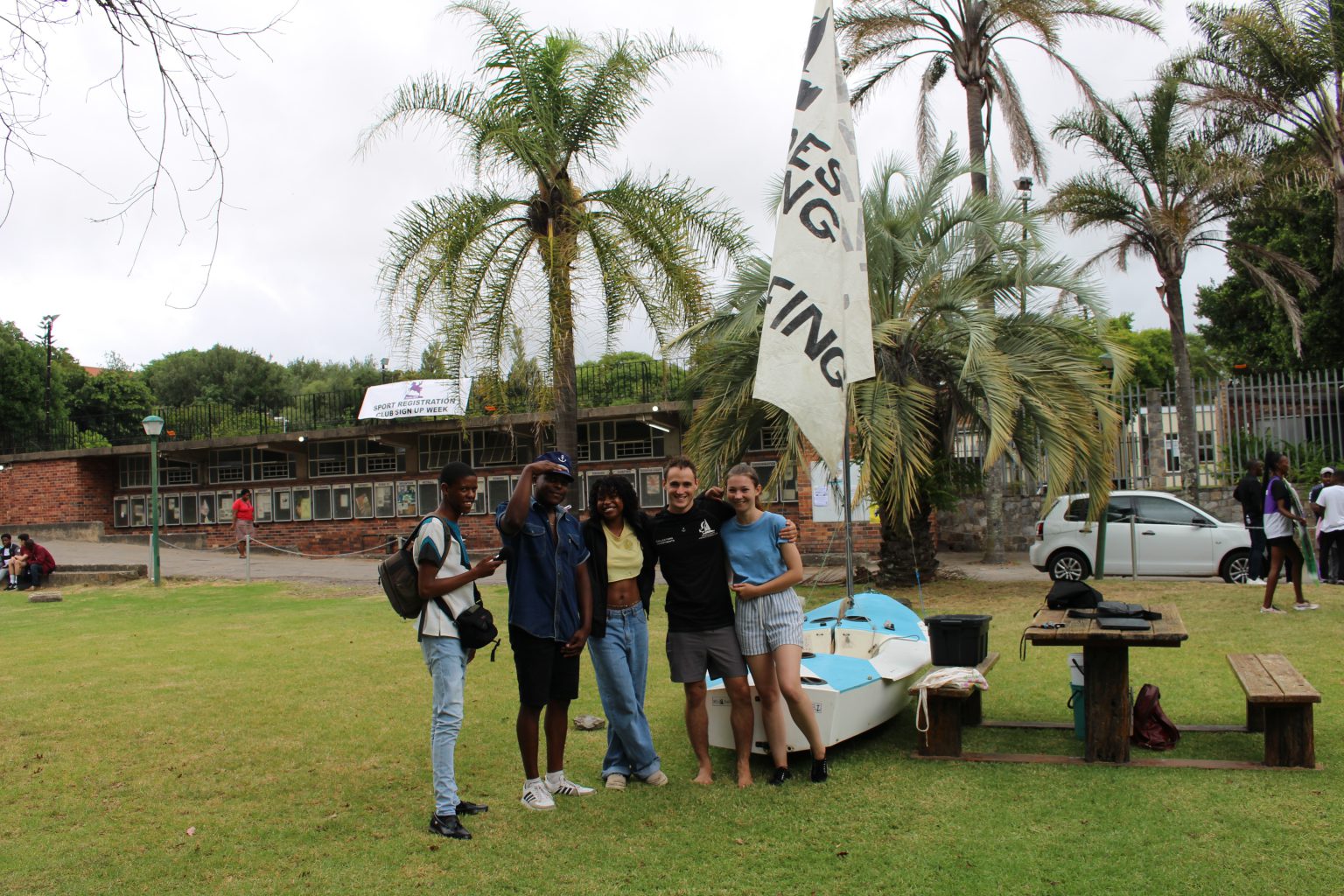By MALIKHANYE MANKAYI
The water crisis is an ongoing issue in Makhanda. On Tuesday, Grocott’s Mail went around the Rhodes University campus to ask students about their experience with water shedding. Many students raised their views on the matter.
Kungawo Memani is a second-year Bachelor of Science student who majors in Microbiology and Biochemistry, and whose home town is Qonce. This is what she had to say:
“The water crisis has affected me very badly because, coming from Qonce, we do have water problems. But in Makhanda, it’s a crisis because you have to buy water to drink, sometimes you don’t have water to shower, and you have to time yourself while in the shower to make sure that you have enough water. Therefore, it’s difficult, but at some point, you have to adapt. Since the crisis is ongoing, students have learned to use different mechanisms to flush the toilets, such as filling up bathtubs, bins and Jojo tank water. A word of advice to the new students who are surprised about the situation, I say to them they must learn to adapt because there is nothing much they can do. I would encourage them to learn other mechanisms they can use while they live at res.”
“Thousands have lived without love, not one without water”: W.H. Auden
Tapiwanashe Mandinde, an Accounting and Economics major from the Faculty of Commerce, has lived in Makhanda for the past three years. He shares his views on the negative impact water has in the daily lives of students:
“The Rhodes sailing and kitesurfing clubs have been impacted the most in the past three years since I got to Makhanda. That’s because the Settler’s Dam is completely dried up that is where we used to go to do most of our sailing and now we have to go to Port Elizabeth on a regular basis. I guess I can’t really complain about that because I get to travel, but at the same time, we can’t truly experience the art of sailing in our town like we used to because of the mismanagement of water. I hope things improve sooner because we need better in order for us to be better. I feel like the municipality can do more to help with the water crisis because when you walk around and see how beautiful the town is, you also see the potential it has. So what is needed is for the municipality to take it more seriously and ensure that everyone’s basic need is met so that people can work to make this town better.”
Thabang Smata, a fourth-year student, shares his experience of the water crisis:
“The water crisis is very demeaning because when you want to do your laundry as a student, you cannot do so. It’s even worse for females, as it’s quite unhygienic not to have access to water. I feel that the university aims to make money, whereas they should look to leaders for innovative solutions to the water problem. The leaders should propose alternative water sources such as boreholes so that we can have our own water and use it whenever the municipality fails to supply us with water. To close off, I will share this my favourite quote with you – ‘If a man does not have sauce, then he is lost. But the same man can get lost in the sauce’ – Gucci Mane.”
Inganathi Mazwana is in his first year of studies in the Faculty of Humanities. Inganathi raised his views on the matter:
“Water-shedding is extremely bad because we need water in the mornings to wash our bodies, and we cannot drink tap water. This means we are forced to buy water. This means that we are paying for municipality water that we cannot drink and have the added expense of buying water to drink. Although paying double for water has a negative impact on consumers, Makhanda’s economy is not necessarily affected because people pay for their water bill at the municipality and also purchase water to drink, so it’s a double win for the economy,”
Anonymous, a first-year student from Komani, shared his views on the matter:
“During the O-week, I struggled to flush the toilet because there was no water. Also, since I come from Queenstown, an economically poor town, I know I will struggle to keep buying drinking water and this struggle can lead to dehydration”.


